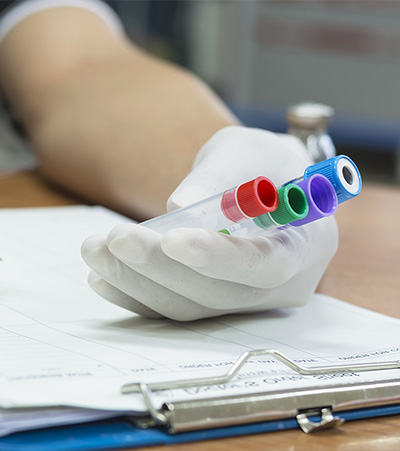
Accelerating Medicines Partnership® in Amyotrophic Lateral Sclerosis (AMP® ALS)
AMP ALS is a public-private partnership established as a component of the Accelerating Access to Critical Therapies for ALS Act. This collaboration, which launched in May 2024, is focused on creating the largest open data platform for ALS research and enabling the discovery and development of diagnostic tools, biomarkers, and better treatments. Learn more.
ALS Accelerated Therapeutics (ALS ACT)
ALS ACT was launched following the Ice Bucket Challenge to expedite the development of new treatments for people living with ALS. It was a novel academic-foundation-industry partnership with ALS Finding a Cure, researchers from General Electric Healthcare and four academic Northeast ALS Consortium (NEALS) sites. Learn more.
Answer ALS
Answer ALS is working to build the most comprehensive clinical, genetic, molecular and biochemical assessment of ALS, while openly sharing the results with the global research community. Learn more.

The Center for Genomics of Neurodegenerative Disease
The Center for Genomics of Neurodegenerative Disease at the New York Genome Center was established with the help of generous support committed by The Tow Foundation and The ALS Association in 2014. The center is dedicated to the study of neurodegenerative diseases, including ALS, Alzheimer’s disease and frontotemporal dementia. Learn more.
CReATe Consortium
This collaborative effort, which is part of the NIH's rare disease clinical research network, promotes the discovery and validation of biomarkers relevant to therapy development for people living with ALS and related disorders, including frontotemporal dementia, primary lateral sclerosis, hereditary spastic paraplegia and progressive muscular atrophy. Learn more.
Genomic Translation for ALS Care
Genomic Translation for ALS Care was a collaborative research effort launched following the Ice Bucket Challenge with Biogen and Columbia University Medical Center. By showing how different genes contribute to various clinical forms of ALS, the results have helped inform the development of new treatments and clinical trials. Learn more.
The HEALEY ALS Platform Trial
The HEALEY ALS Platform Trial is a multicenter, double-blind, placebo-controlled, adaptive clinical trial that is testing multiple investigational treatments in parallel – a first for ALS research. This trial is centered at the Sean M. Healey & AMG Center for ALS at Massachusetts General Hospital. Learn more.

The Neuro Collaborative
Bringing together experts from three leading laboratories in California, The Neuro Collaborative helped advanced ALS drug development by reducing risk in the drug discovery process and helping attract industry partners. Learn more.
NeuroLINCS
NeuroLINCS is part of the NIH’s Library of Integrated Network-Based Cellular Signatures (LINCS) Program. It brings together research groups with expertise in iPSC technology, disease modeling, OMICS methods and computational biology to investigate the causes of neurological diseases and develop new therapies for ALS and spinal muscular atrophy.
Learn more.
Northeast ALS Consortium (NEALS)
NEALS connects more than 140 global member sites to rapidly translate scientific advances into clinical research and new treatments for people with ALS and motor neuron disease. The ALS Association also supports the NEALS Sample Repository, which stores blood, cerebral spinal fluid, extracted DNA, urine, etc., collected during NEALS and NCRI research studies and makes them available to ALS researchers. Learn more.

Pooled Resource Open-Access ALS Clinical Trials (PRO-ACT) Database
PRO-ACT is the world’s largest ALS clinical trial data repository and provides anyone interested in moving ALS research forward with access to data from existing publicly and privately conducted ALS clinical trials. Learn more.
Project MinE
Project MinE is an international, large-scale research initiative devoted to discovering genetic causes of ALS and to ultimately find a cure. Support from The ALS Association was instrumental in establishing the U.S. arm of this project following the Ice Bucket Challenge. Learn more.
